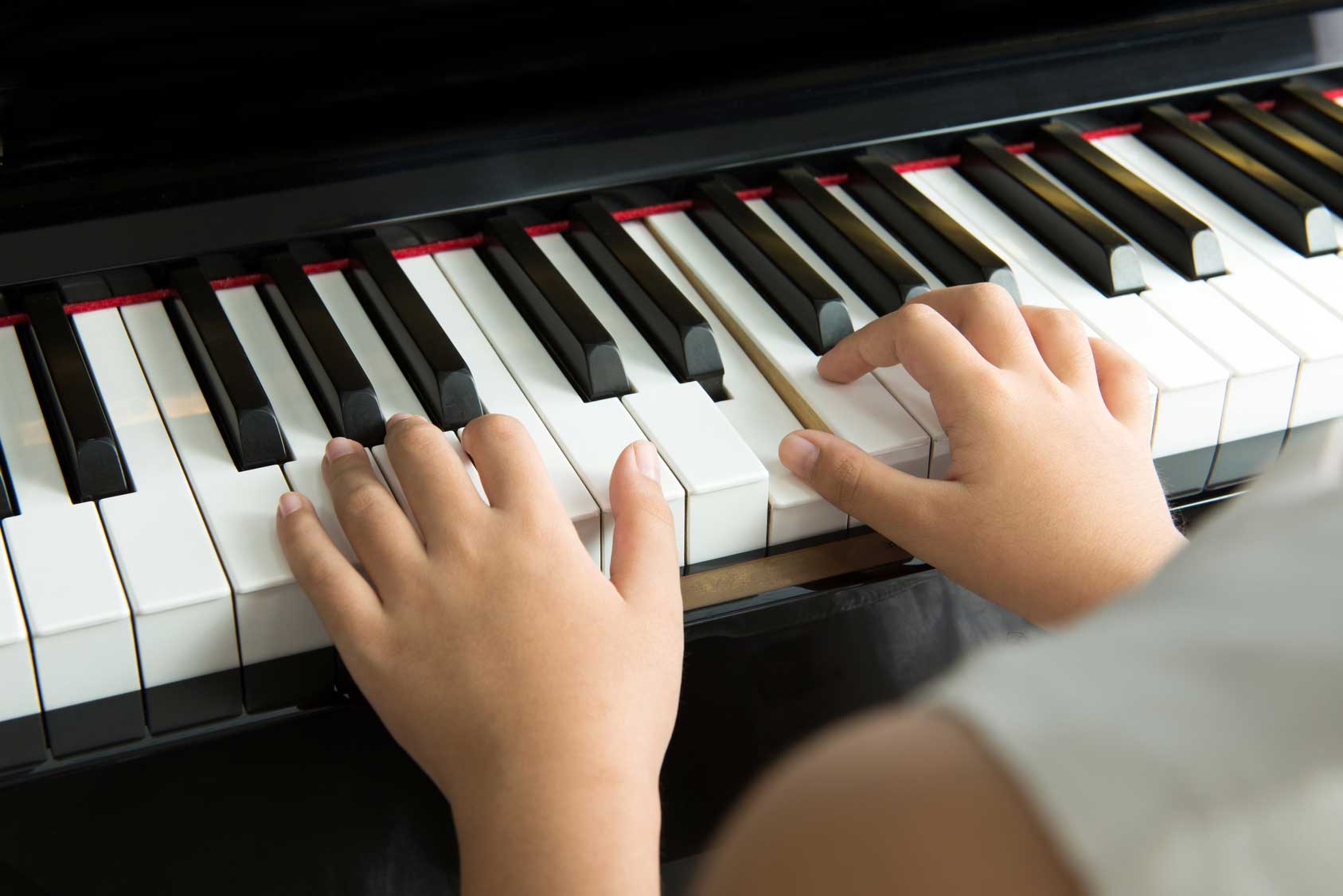 Learning to play the piano offers your child much more than just a fun hobby.
Learning to play the piano offers your child much more than just a fun hobby.
Childhood experts believe that playing piano benefits development in a multitude of ways.
You may be hesitant to add piano playing to your child’s growing list of things to do.
Parents today are constantly being bombarded to sign their children up for just one more thing: sports, lessons, tutoring…
It seems like there is always somewhere to be, somewhere to go. She’s late for this. He’s going to miss that.
Then, you are expected to pay loads of money: registration fees, equipment fees, uniform fees, manuals, and then for the lessons themselves…
So, I know what you must be thinking…
Don’t worry.
You are not being asked to sign any forms.
You are not going to have to meet another teacher. Or write endless checks. Or rearrange your schedule to squeeze in another after-school activity.
While many childhood professionals would argue that piano playing is worth the investment and effort sacrificed by families, the smart piano makes playing piano possible for your child… without formal lessons, from the comfort of home, whenever it’s convenient.
Read on to learn how playing piano can benefit your child’s future!
The Top 5 Ways Playing Piano Helps Child Development:
1. Playing piano helps children develop intellect.
A Canadian study found that children who participated in vocal or piano lessons for nine months averaged a three point improvement in IQ.
The findings support the theory that piano lessons can actually make children smarter.
2. Playing piano improves listening skills.
In 2012, researchers discovered that when children take piano lessons, it has lasting benefits on the brain’s ability to process sound.
The areas studied are those responsible for listening and learning.
The research found that even when children do not play piano past middle school, a few years can reap benefits lasting into adulthood.
3. Playing piano provides significant emotional and behavioral benefits.
A study out of Vermont found that playing piano can help children pay attention, reduce anxiety and develop emotional control.
This news gives hope to parents raising children who have been diagnosed with Attention Deficit Disorder, Oppositional Defiant Disorder, and other emotional or behavioral issues.
In addition to improving outcomes, playing piano might provide an alternative to using medication to treat social, emotional and behavioral symptoms in children.
4. Playing piano improves coordination.
While music lessons may help children develop better coordination, playing piano has an added benefit.
It also teaches children to use both sides of their bodies simultaneously.
In addition to ambidexterity, it improves timing and overall coordination, leading to the child’s physical development.
These skills boost children’s performance levels in areas such as sports and dance.
5. Playing piano boosts self-esteem.
Playing the piano allows children to showcase their talents and skills.
Children learn the value of hard work and determination.
Overcoming difficult tasks, such as learning a new song successfully, improves self-confidence.
Conclusion:
You can feel good about providing your children with the skills and benefits of playing piano.
The smart piano makes this possible, without adding stress or inconvenience, and that’s music to everyone’s ears.